The Canoe Is the People
Indigenous Navigation in the Pacific
The stars can never go wrong
Thousands of years ago, when most sailors were still hugging the coast, the island peoples of the Pacific held the knowledge and skills to explore the great ocean paths extending far beyond their homes. Modern instruments didn't exist - no compasses, no radio, no radar GLOSSARY radar - a system that uses electromagnetic waves to locate surrounding objects , no GPS GLOSSARY Global Positioning System (GPS) - a handheld computer that tells your position by communicating with satellites . The Pacific peoples found their way across the ocean, guided by the wind, waves, stars, and sea life.
Ancient voyagers did not use metal or fiberglass to make their boats, nor plastics to make rope or dacron for their sailcloth. They did not use outboard motors or diesel engines. They made sturdy boats from natural materials: rope from plant fibers to lash the canoe together, the leaves of plants to make their sails. They used the wind to move across the ocean. Their knowledge was built up through generations of experience. It was handed down through teaching, stories, and songs.
An experienced Tongan wayfinder once said, “The compass can go wrong, the stars never.” From David Lewis in Bader, H. and McCurdy, P., eds (1999). And that is the beauty of Pacific wayfinding. Voyage into this website to find out more…
Using our ancestors’ knowledge today
Hoturoa Barclay-Kerr of Te Toki Voyaging Trust
“We’re finding that all the things that children are taught at school, like about mathematics and science and astronomy and all those things, are things that our ancestors knew a lot about anyway and did before. So once we can get the message to people to understand that the knowledge of all our ancestors was as useful as any knowledge today, I think then people will be more interested in trying to look at learning about becoming, or following the pathway to become, a wayfinder.”





